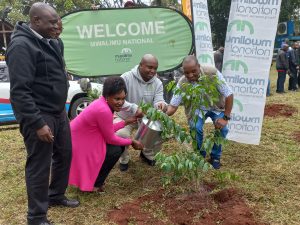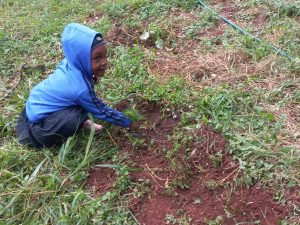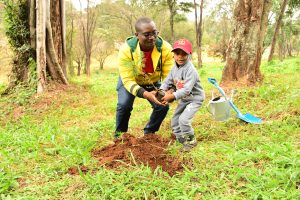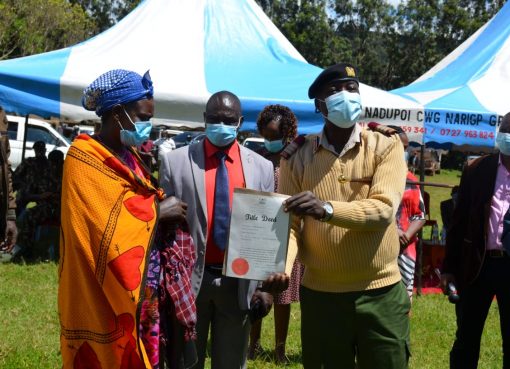Cooperatives across the country have been urged to plant trees in efforts to improve the environment and as raw materials for some key value chains were crucial to the cooperative movement ecosystem.
Cooperative Alliance of Kenya (CAK) Chairman Macloud Malonza said that trees are very important for some of their Sacco’s since they provide raw materials for value addition in the processing in some sectors like dairy, coffee, tea and business in the line of fruits production.

Speaking on Saturday at the Nairobi ASK show ground during the Ushirika environmental day and tree planting exercise, Malonza said, “If we play with the environment, it will affect our business ecosystem and we will not be able to nurture the growth and development of the Sacco movement.”
He explained that the government has given them a target of every staff member to plant at least 30 trees which will help to achieve the Kenya Kwanza target of planting 15 billion trees by 2032.
“We are supporting the government in terms of addressing climate change because it has a lot of effect on people’s incomes and if their incomes are affected, they will not have disposable income to save and so the Sacco’s will also suffer,” said Malonza.

He explained that CAK has a 50 acres piece of land in the Ngong forest where they will be planting and nurturing trees to maturity as he called on other Sacco’s members to plant trees across the country.
Malonza added that the environment creates a lot of synergy in terms of their business ecosystem where they want to first ensure that everybody has something to eat because the environment provides for where the food comes from.
“We want all the farmers in all the value chains to form Sacco’s and join us, this way we will continue making the cooperative sector even more successful,” said the chairman.
Malonza explained that the Kenya cooperative movement is the biggest in Africa and eighth in the world and they target to move up and become number one in the world so that they can continue improving the livelihood of Kenyans.

“If Kenyans save enough money, they will be able to develop themselves and their families. The government will also be able to borrow from Sacco’s instead of getting foreign expensive loans,” he said.
Kenya Forest Service (KFS) Assistant County Forest Conservator in Nairobi Ambrose Genga said that they are moving away from the model of tree planting to the new model of tree growing saying that as people plant trees they need to keep an eye on them and make sure they grow to maturity.
“This tree growing model is the only sure way to see that we meet and even surpass the governments’ target of achieving a 30 percent tree cover in the country within the next 10 years,” said Genga as he insisted that it is everyone’s responsibility to plant trees.
The CAK Chief Executive Officer Daniel Marube said they are encouraging their cooperatives in the agricultural sector to ensure that each family plants at least 30 trees and nurtures them to maturity.
“On July 1st we will be commemorating the International Day of Cooperatives at the KICC, a day which celebrates the achievements of cooperatives across the world. Cooperatives are celebrated across the world for addressing the needs of the common people by bringing them together to save in order to grow their financial status,” said Marube.
Marube commended the government for recognizing cooperatives as one of the best means to achieve its core mandate within their manifesto.
By Joseph Ng’ang’a





